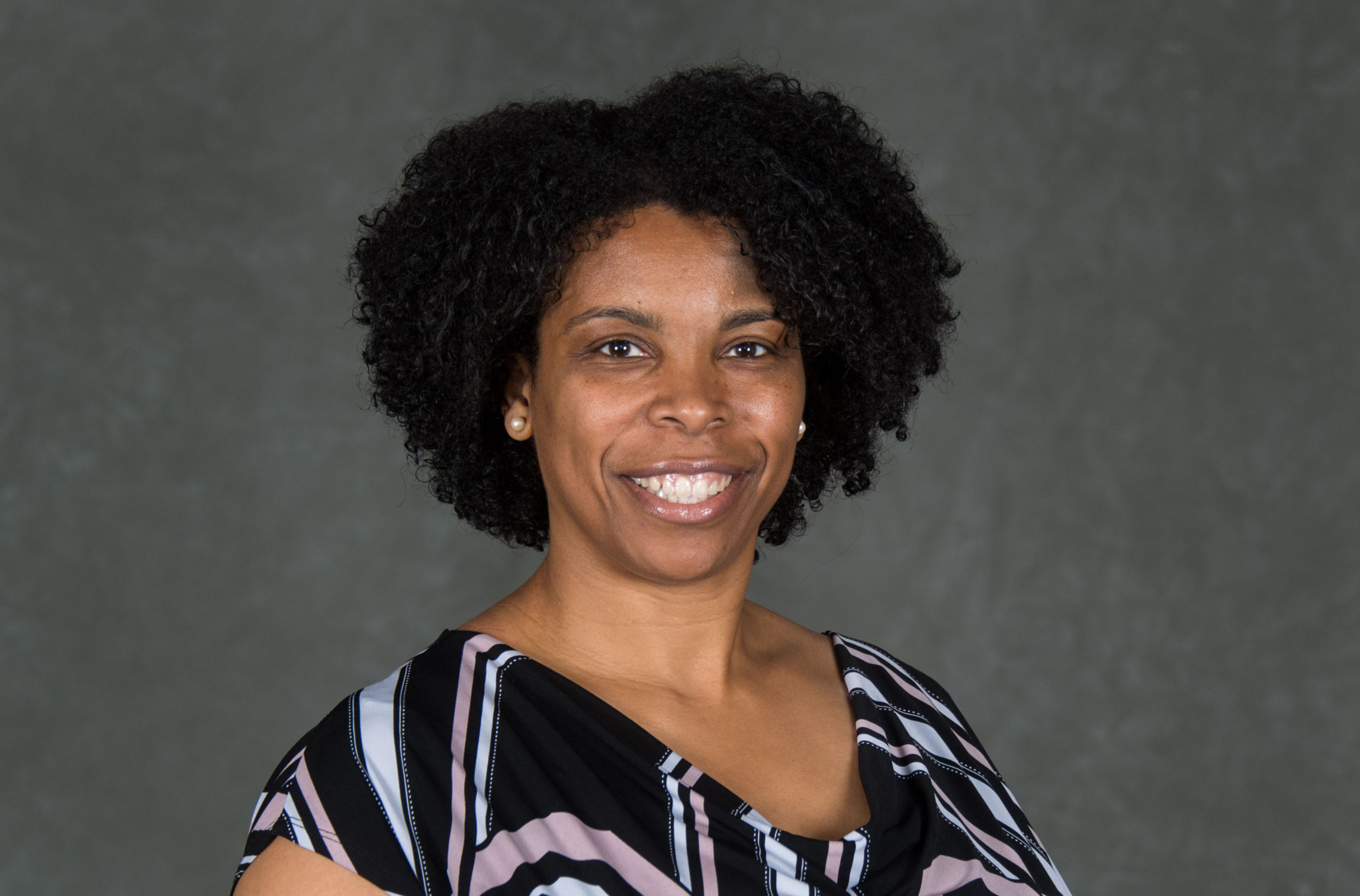Kimberly Sellers Named ASA Fellow for Research, Collaboration and Leadership in Justice and Equity
Kimberly Sellers, Ph.D. and professor in the Department of Mathematics and Statistics, was elected as a Fellow in the American Statistical Association (ASA) for her excellence in dispersed count data methodology, impactful collaborations with the US Census Bureau and exemplary leadership increasing justice, equity, diversity and inclusion in statistics and broader mathematical science communities.
“I’m deeply honored and humbled by this prestigious recognition,” Sellers says. “It affirms the significance of my contributions to the statistics discipline in all respects — research, education and service.”
Equations and Equity
Sellers was selected for this honor in part for her statistical research and analyses involving count data that contains data dispersion. She is a leading expert in such models and has authored or co-authored numerous methodological papers, thus developing flexible regression models, time series models, univariate and multivariate distributions and a control chart, among other works.
Further, Sellers has several statistical computing packages available for use for these analyses in the popular freeware tool, R/RStudio. Sellers’ work also includes image analysis techniques, particularly low-level analyses including preprocessing, normalization, feature detection and alignment.
In addition to her research, Sellers has mentored numerous Georgetown students all with the aim of instilling an appreciation for mathematics and statistics and further holds a secondary appointment at the US Census Bureau with the Center for Statistical Research and Methodology (CSRM) where she collaborates with other Census statisticians both within and outside of the CSRM.
While Sellers has made innumerable contributions as a researcher and scholar, the ASA also recognized her for her work as a leader in advancing justice and equity in the fields of mathematics and statistics, working to increase diversity and inclusion in the discipline, which she says has always been her passion.
“I describe myself as ‘an outlier personified’ and that can be a blessing and a curse” Sellers says. “When I earned my B.S. in mathematics from the University of Maryland in 1994, I was the only Black math major in my undergraduate class, and at that time it was the largest ever math cohort at UMD, so it has always been an interest of mine to help increase diversity in the discipline.”
Further, in 2001, which was the year that Sellers earned her Ph.D. from George Washington University, there were only eight African-American women nationally who graduated with a PhD in the mathematical sciences that year.
Sellers has long been active with various organizations sharing in this mission, including the ASA’s Committee on Minorities in Statistics and Committee on Women in Statistics, respectively; and the National Association of Mathematicians.
Sellers has further held positions as the chair of the Committee on Women in Statistics, advisory board member for the Black Doctoral Network (BDN) and director of their STEMmers group, and has served on organizing committees for various conferences that likewise strive to increase the representation of under-represented minorities and women in the field, including the Conference for African-American Researchers in the Mathematical Sciences, Infinite Possibilities Conference, Women in Statistics and Data Science.
Most notably, she was recently selected as the inaugural chairperson for the ASA’s newly established Justice, Equity, Diversity and Inclusion (JEDI) Outreach Group.
In 2020, the deaths of Ahmaud Arbery, George Floyd, and Breonna Taylor coincided with the COVID-19 pandemic, which brought racial and economic disparities to the forefront of society. As a result, the ASA established an anti-racism task force and the JEDI Outreach Group, which covers all aspects of equity and diversity including sexism, racism, ageism, ableism and classism to name a few.
Sellers started her tenure as the inaugural chair of JEDI at the beginning of this year and will serve in that position for two years. While in this role, Sellers is responsible for creating infrastructure and partnership with the various organizations that individually tackle issues of discrimination to help give voice to these matters, and help statisticians and data scientists to be more mindful of the unforeseen repercussions that statistical methods can potentially impact marginalized groups. These efforts, however, should be a concern to everyone — not just those that are marginalized.
“Algorithmic bias, for example, is very much a JEDI-related issue because, as we increasingly rely on AI, inherent bias can unwittingly be introduced in those algorithms,” Sellers explains. “The resulting codes can potentially lead to detrimental and catastrophic effects for marginalized communities.”
Sellers also says that though it is a daunting task, her goal as chair is to “galvanize the troops.”
“In this capacity, one of the issues that I think exists as it relates to the various isms is the notion that ‘if it doesn’t impact me, then it’s not my problem,” she continues. “Instead, we need to recognize the shared experiences of those effectively marginalized, and strengthen allyship in our society. This will hopefully reduce societal inequities.”
Since she has started as chairperson, Sellers has been featured on ASA’s podcast series Practical Significance, launched the group’s website and JEDI recently held their first virtual meeting. JEDI has already demonstrated themselves as an active organization, sponsoring and co-sponsoring four sessions during this year’s Joint Statistical Meetings, and starting both a regular segment in the ASA’s publication, Amstat News, called “The JEDI Corner”, and a webinar series that discusses JEDI-related matters.
“It is refreshing to see the excitement and the interest to change the culture,” Sellers says.
-by Shelby Roller (G’19)
